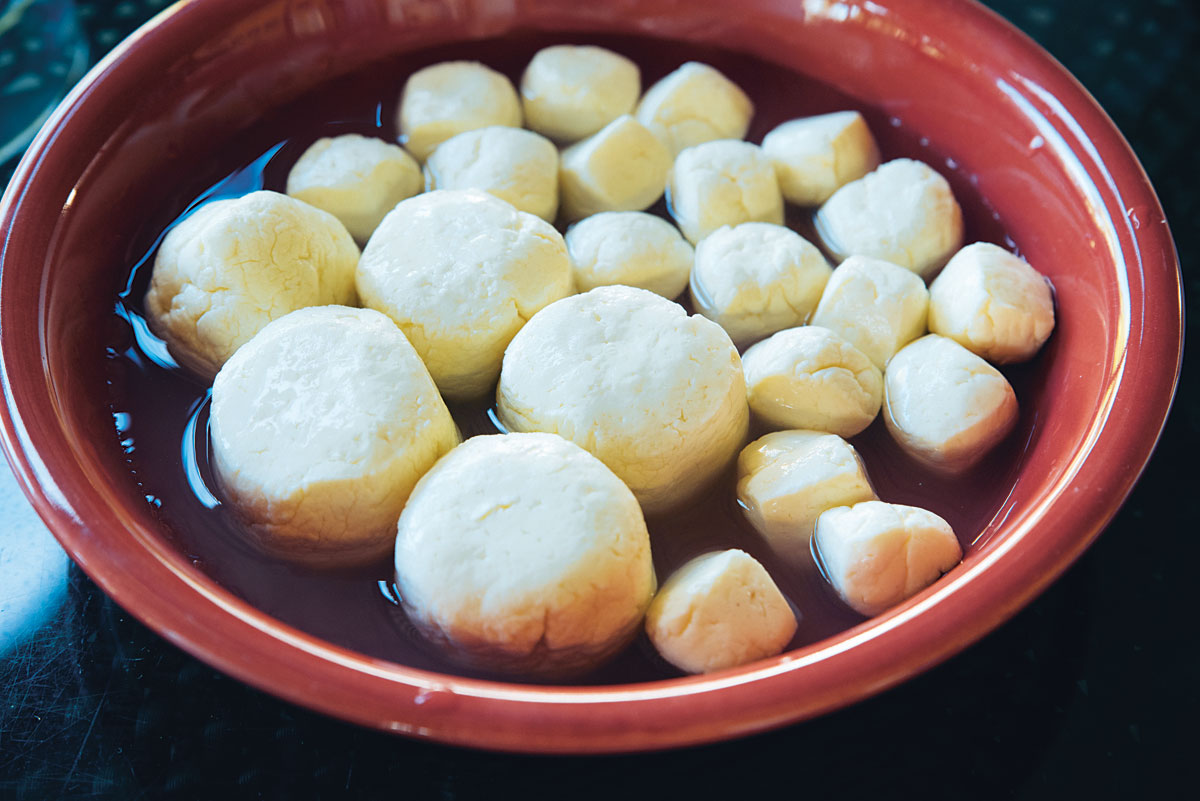Whether it’s because of geography or the anatomy of the Asian stomach, cheese isn’t considered a popular dish in Asia. Even if dairy production in the Philippines can be traced back to the 15th century, when milk was consumed straight from the animal and carabao milk was used to create soft cheese that was a delicacy for the Spaniards, Filipinos aren’t traditionally known as cheese producers or consumers.
Still, many Filipino households enjoy adding cheese to breakfast or merienda staples, like pairing the local kesong puti—a soft and creamy form of white cheese made from day-old unskimmed carabao milk—with pandesal. Though it’s a simple substitute for more elaborate European cheeses, our love for our own kesong puti is proof that we have an innate appreciation for the savory aged dairy product; just walk through the long aisles of chillers in local supermarkets. The ever-expanding shelf-space dedicated to different cheeses, albeit mostly imported, indicates that there is a growing market interested in buying a variety of flavors and textures.
Though this is still a considerably small cheese market compared with other countries outside Asia, three local dairy farmers see potential in going against the grain and producing honest cheeses made of the highest-quality milk available on our shores—a feat almost impossible in a country where the local dairy industry is monopolized by large corporations and prime cattle are scarce.
Rizal Dairy Farms
Out to change the industry a little slice at a time are Swiss-born Jacqueline Haessig-Alleje and her husband Tony. They founded Rizal Dairy Farms in 1992 with the aim of simply producing high-quality milk for their children to consume. Later, the surplus of milk allowed the couple to expand their product line to include yogurt and a variety of cheeses, which they sold at weekend markets around Makati. “The thrust of Rizal Dairy was always our high-quality products, even from the start,” explains Haessig-Alleje.
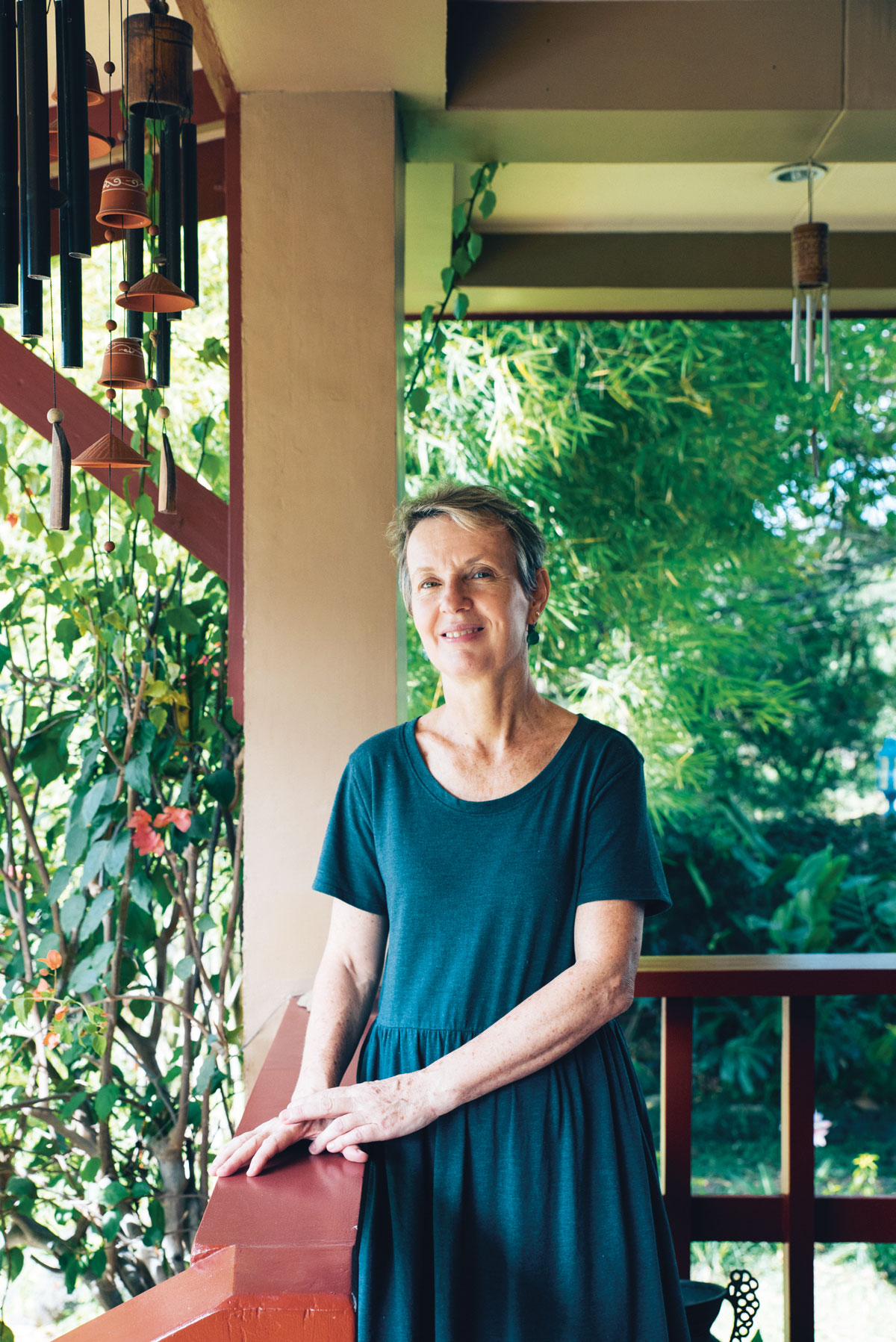
As luck and a good brand name would have it, Rizal Dairy caught the attention of the F&B manager of a golf club looking for a kesong puti supplier. Realizing the potential of supplying other hotels and restaurants as well, the Allejes shifted their focus to supplying institutions in 1994.
“We moved along with the needs of the industry,” says Haessig-Alleje. “When there is a need, we develop it according to [the client’s] specifications.” Despite the shift in focus, the brand is still very much present at weekend markets and keeps a permanent stall at Market! Market!’s Fresh Market.
“These give us the opportunity to talk to our clients and allow them to get to know us better. They can ask us about our products, and we can easily discuss it with them,” she explains. “In a supermarket, the value-chain is simply too long. We wouldn’t get that kind of interaction there.”
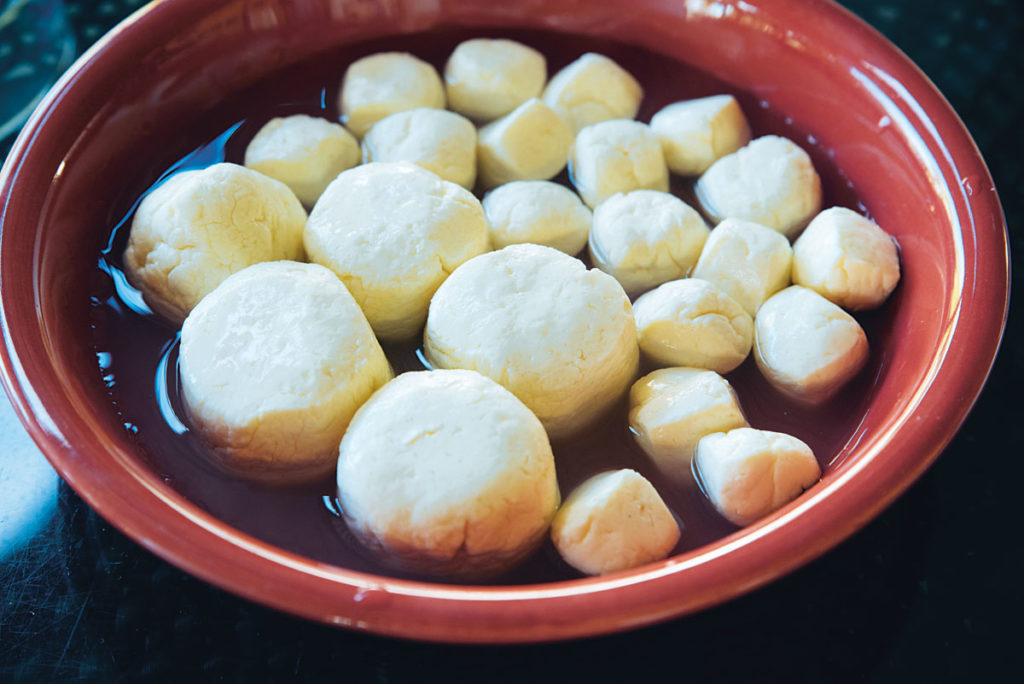
Their cheese line has since expanded to ricotta, mozzarella in brine, cheese curd, Swiss quark (which is used mostly in European pastries and works like sour cream but is low in fat), and kesong puti, while other products include buttermilk and Greek yogurt.
Though already a trusted name in artisanal dairy products, the Allejes will continue growing their product line, working towards cultivating not only the market but also the local dairy industry. “There’s always a segment of society that pays the premium to have good food and good nutrition. The people who really care about what they put into their mouths are the people I’d like to reach.”
Casa del Formaggio
Similarly, Casa del Formaggio provides the market with high-quality cheeses, this time specializing in the Italian kind. The brand is only two years old, but Mercanti Veneziani Trading, which husband-and-wife tandem Francesco and Isabelle Patron established to promote Italian food in the country as well as create job opportunities for the locals of Negros Occidental, started in 2008.
To inject authenticity into the flavors, the Patrons learned cheesemaking in Milan and Venice, Italy, the region from which Francesco hails. “The cheese my wife makes is even better than what they make in Italy,” says the proud Venetian native without bias. “She lets me try the cheeses and I notice when the flavor is a bit different. She knows the flavors so well; she makes them even better now.”
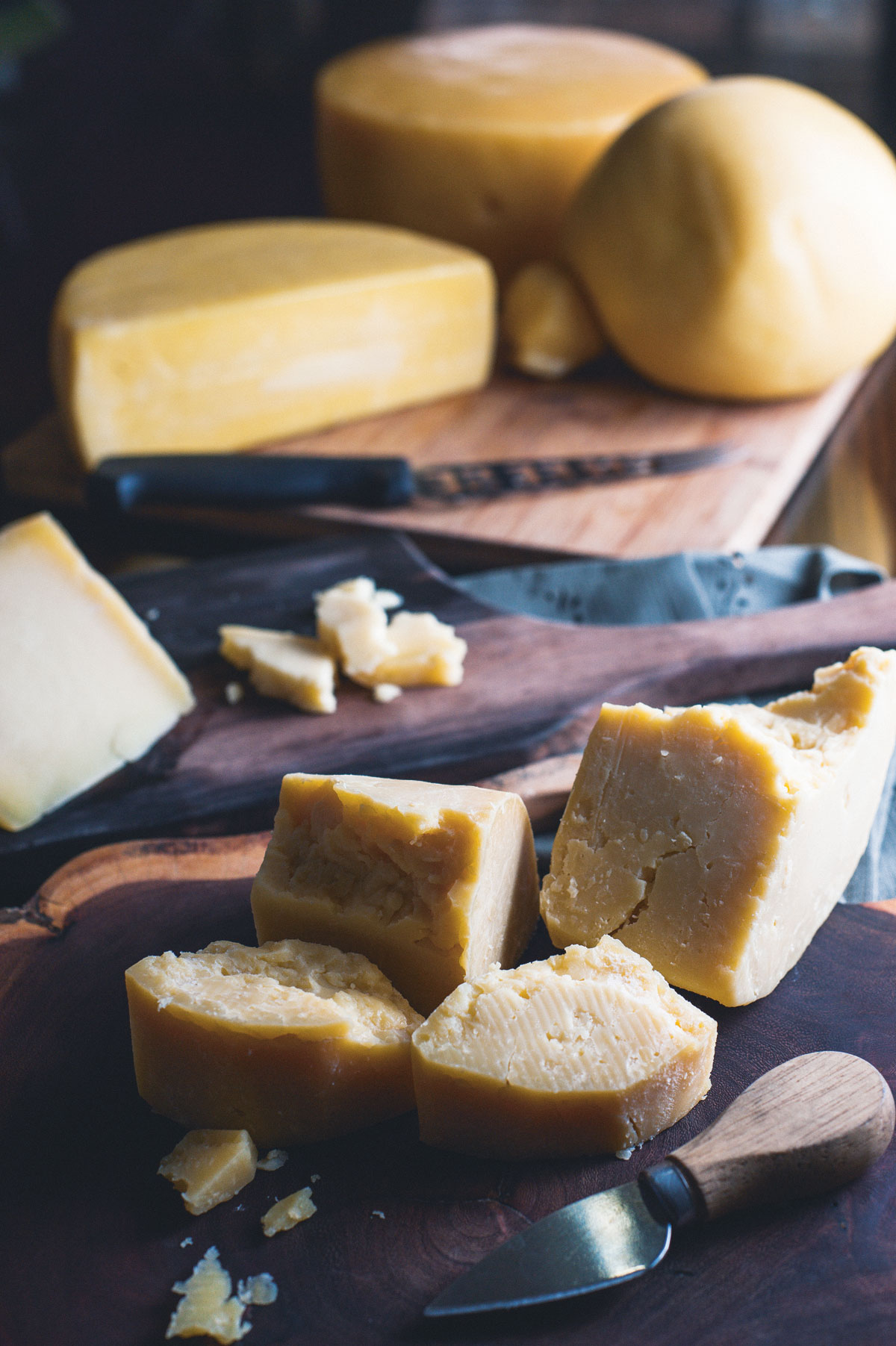
“Our cheeses are all natural,” says Patron. “We can guarantee the cheese that we make because it’s from our own dairy farm in Negros, you can even drink [the milk] raw. We don’t get from other farmers. And if there is ever a need to, we get from big farms that we know and trust.”
The couple’s line of cheeses includes mascarpone (coagulated cream cheese), caciocavallo (stretched curd cheese), mozzarella, and kesong puti, one of their most in-demand cheeses. Though the brand mainly sells to institutions like Purple Oven, The Clean Plate, and Grace Park, the products will soon be available at a planned retail outlet, the Casa del Formaggio store.
While building a fairly new brand, the Patrons are working with the drive and foresight of a storied business. They are hoping to soon see the day that locals form a deeper understanding and appreciation for cheese, seeking it out and welcoming it at their tables.
Hacienda Macalauan
Also operating with the same belief in quality branding is Hacienda Macalauan, Inc. (HMI), a dairy corporation founded by Eduardo Soriano in 1995. The farm where HMI’s dairy production and processing take place is situated in Calauan, Laguna, where the rolling hills and fresh air provide an ideal environment for raising cattle.
Boasting a sophisticated milking parlor designed at the University of Wisconsin, Soriano’s farm is considerably one of the most high-tech farms in the country today, allowing the company to fill the needs of industry giants like McDonald’s, Krispy Kreme, Solaire Resort and Casino, Sky Kitchen, and Manila Hotel.
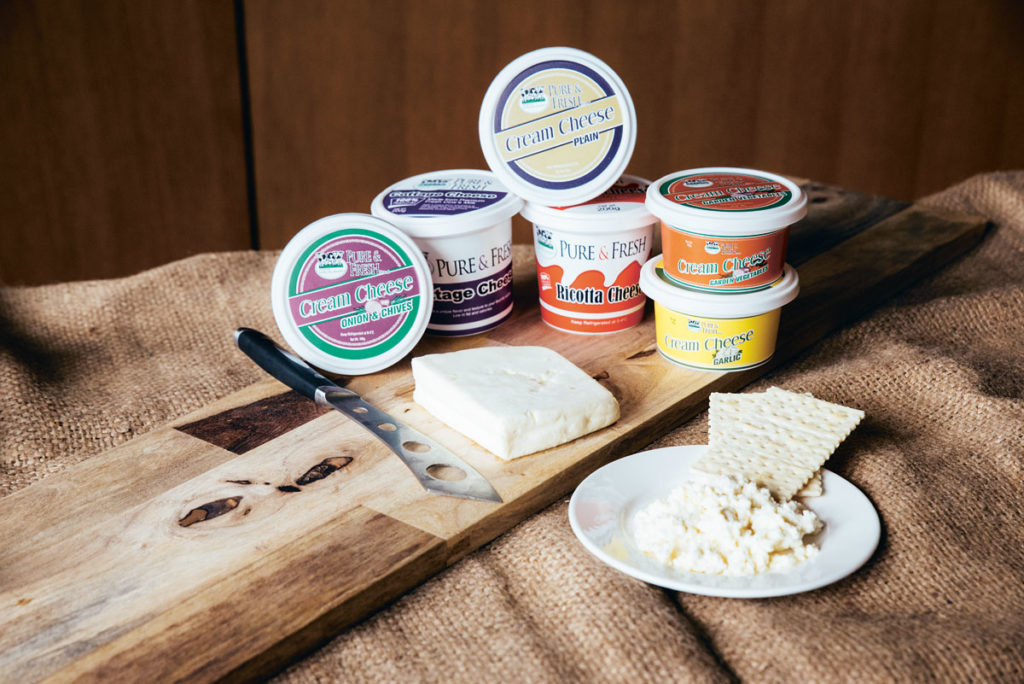
HMI’s dairy line, which includes ricotta, cottage cheese, shredded mozzarella, kesong puti, and a variety of cream cheese, goes beyond what’s in the supermarkets, with a variety of different kinds of milks and cheeses tailored for the institutions they supply. “The brand philosophy is to make as good a product as we can, without sacrificing the quality. All our products are kept as natural as possible,” says Soriano.
With more players taking cues from these producers who are striving to grow the local cheese market and raise the standards of the Philippine dairy industry, there are high hopes that soon, more people will appreciate the real freshness that local farmers can offer and, with the right guidance and support, more easily produce.
Originally published in F&B Report Vol. 13 No. 2





